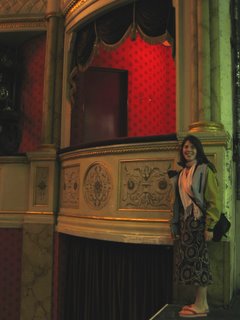"Bell in Campo": Sisters Doin’ It For Themselves in 1662
 “...now or never is the time to prove the courage of our sex, to get liberty and freedom from the female slavery, and to make ourselves equal with men… shall only men live by fame, and women die in oblivion?”
“...now or never is the time to prove the courage of our sex, to get liberty and freedom from the female slavery, and to make ourselves equal with men… shall only men live by fame, and women die in oblivion?”~Lady Victoria (p. 81)
We’ve discussed in class how the women writers of our period (in any period, actually) must either identify themselves as something new, as completely apart from male history, or situate themselves within existing history. Secondly, women writers can choose to focus on the difference between women and men—finding strength in uniquely feminine qualities—or on the similarities between the sexes, coding virtue as genderless.
In the case of Bell in Campo, Cavendish’s women warriors do not see themselves as anything new, but as part of a historical narrative. The “Generaless” Lady Victoria is constantly referring to figures from the past to validate her actions, citing Ulysses’ wife Penelope as a negative example of what happens when spouses are separated. If left behind like Penelope was, she tells her husband, “it will be a thousand to one but either you will lose me in death, or your honour in life” (p. 36), i.e., she will not be able to prevent other men from taking over in her husband’s absence. The positive examples Lady Victoria seeks to emulate are the “heroic actions done in former times by heroic women” (p. 55), such as the Amazons. Some of the male characters (the “good” ones) also see the value of heroic, active women. As Gentleman #4 notes, “there have been many women that have not only been spectators, but actors, leading armies, and directing battles with good success” (p. 40).
So Victoria and her warriors see themselves as connected to fighting female predecessors. History, then, has gone backward in civility, rather than in a straight line of progress towards an equal society. Lady Victoria and her warriors speak of “the love of change, and as it were a new course of life” (p. 58), but it is really an old way of doing things that they seek to bring back.
What about the gendering or non-gendering of virtue? The women warriors in this play clearly do not wish to separate themselves from men, but to co-rule and fight side by side with the men they love. Cavendish shows that women can be equal to men in both rhetoric and skill on the battlefield. Lady Victoria’s speech points to education as the major reason for female weakness: “had our education been answerable to theirs, we might have proved as good…” (p. 48). The weak female characters, Madam Whiffell and Madam Ruffell, are used comically, to highlight the ridiculousness of their behaviour. Madam Jantil, who dies of grief over her husband's death, and Madam Passionate, who remarries into a slavish hell, meet unhappy ends not because they are women but because they do not stand up and fight for their causes. Weakness or strength, then, are not matters of gender, but of education and individual choice.
On the other hand, Victoria and her women sometimes code their strength in gendered terms, such as fertility, pregnancy and motherhood. Lady Victoria uses metaphors such as “the womb of the mind” and “the mothers of glorious actions” (p. 81). Also, after the battle is over, the women seem to accept Gentleman #2’s idea that “women were creatures made by nature, for men to love and admire, to protect and defend, to cherish and maintain” (p. 87). Are there or aren't there different roles for men and women? The issue of sameness/difference doesn’t seem clearcut… Cavendish seems to want it both ways. The women claim to want equality, but then there are lines like “You goddesses on Earth, who have the power and domination over men, ‘tis you we worship and adore” (p. 92)—sounds a lot like courtly love, in other words putting women on a pedestal and setting them apart from men. This feminist fantasy can’t always make up its mind…
I was reminded in some ways of Aristophanes’ Lysistrata—each play addresses the contribution that women could make to society and to decision making, if only men wouldn’t ignore their views. The women in Bell in Campo don't go on a sex-strike to prove their point of course, but I think there are some parallels. I wonder if Cavendish would have read Aristophanes? Probably not, as she didn't have a classical education.
Biggest mouthful:
“betwixt the heroicks and heroickesses”
~Gentleman #2 (p. 107)
Best line:
“happy is the wooing that is not long a-doing”
~Doll Pacify (p. 108)



 Hello English 6365,
Hello English 6365,